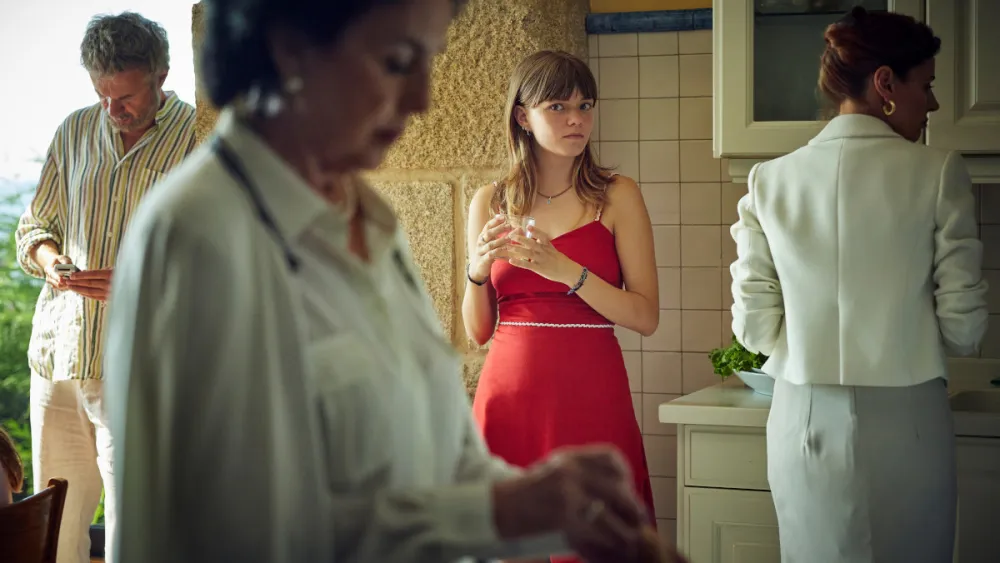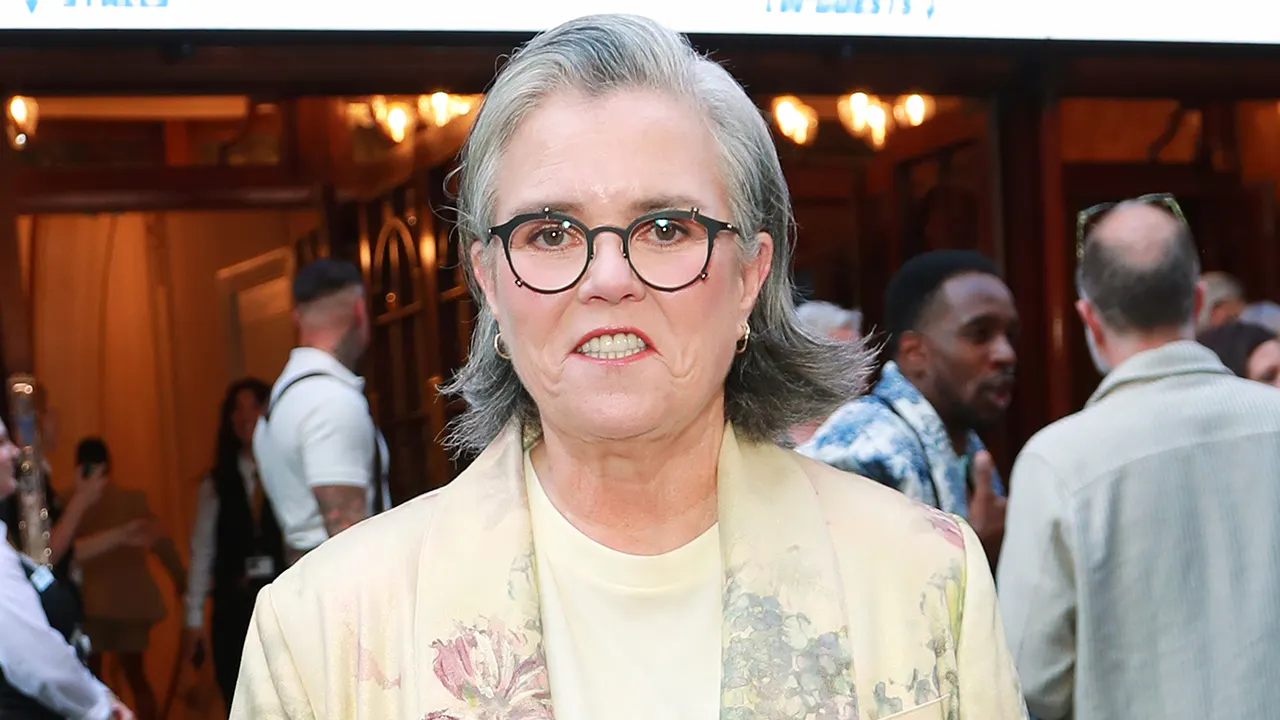Copyright Variety

Over the last 18 months, Catalan filmmakers and productions have taken the festival circuit by storm. For the first time since 1988, at Cannes this year, two Spanish movies secured a main competition berth without one being directed by Pedro Almodóvar: Oliver Laxe’s “Sirât and Carla Simon’s “Romería.” Both are Catalan productions. “Sirât” won a Cannes Jury Prize, Lucía Aleñar’s “Forastera,” another Catalan title, a Fipresci Prize for Emerging Filmmakers at Toronto this year. In 2024, “Robot Dreams,” from Barcelona-based Arcadia Motion Pictures, scored an animated feature Academy Award nomination. Carlos Marqués-Marcet’s “They Will Be Dust,” which opens the Tallinn Black Nights Film Festival on Nov.7, won the Platform Prize at Toronto, the Festival’s highest honor. Three weeks later, Albert Serra’s “Afternoons of Solitude” scooped San Sebastian’s Golden Shell, the biggest prize out at the most important festival in the Spanish-speaking world. Liliana Torres’ “Mamifera” nabbed best performance at SXSW. Now Catalonia is the subject of the Tallinn Black Nights Film Festival 2025 In Focus tribute. The Focus, moreover, will not be a minor affair, taking in 46 titles, spread between 40 completed films and TV series, including 8 modern classics, and 6 projects or works in progress. A delegation of over 40 Catalan industry professionals will travel to Tallinn. That powerhouse punch may be unusual, but it’s hardly surprising, building on a Catalan industry makeover now years in the making. Behind Catalonia’s Build One basic driver, as so often in Europe, remains public sector funding. Building steadily since 2019, in 2024, Catalan government investment in the audiovisual sector, via its departments of culture and linguistic policy – ensuring development, production, distribution, subtitling, dubbing and exhibition in Catalan – stood at €60 million ($69 million), says Edgar Garcia, director of the Catalan government’s culture industry unit ICEC, noting that Catalonia’s current government regards audiovisual as a strategic sector, just as the previous government did. “Catalonia is not a passing trend, it’s a reality that is consolidating,” says Garcia. Fulsome finance has backed the closest Spain has enjoyed in recent times to a cinema movement. From broadly Carla Simon’s “Summer 1993,” a Berlin 2017 best first feature award winner, a new generation of filmmakers – notably often women, whether directors or producers – has broken through, often making films which are grounded in a local sense of place but grapple with universal issues, coming in on them from less explored angles. 2025 is no exception. Tallinn’s Catalan Focus takes in “Deaf,” a Berlin Panorama Audience Prize winner produced by Barcelona’s Distinto Films and A Contracorriente Films, which explores maternity from the viewpoint of a deaf mother. Julia de Paz Solvas’ sophomore feature “The Good Daughter,” world premiering in Tallinn main competition, plumbs gender violence from the untutored perspective the daughter of a direct victim. Other factors are at work. In 2020, ICEC launched a minority co-production fund offering up to $300,000 to Catalan producers positioning them, giving this backing, as Garcia notes, as a partner of trust. “Catalonia’s industry stands out for its openness to international co-production. We are not only close to our own stories but have a mature business eco-system which allows us to look to co-production [abroad],” says Garcia. “It’s a highly necessary fund and opens many doors, giving producers the option to enter projects such as ‘The Virgin of the Quarry Lake,’” says David Matamoros at Mr. Miyagi, the Barcelona-based producer of the film, a highlight in Tallinn’s Midnight Shivers. Pan-regional co-production with other parts of Spain has also flowered. The results have been telling. Nine of the 12 Spanish films shortlisted for next January’s European Film Awards are Catalan productions. Taking place at Tallinn on Nov. 17, the presentation Catalonia in Focus: A Leading Hub for International Co-Production will explore Catalonia’s openness to international collaboration, including the diversity and quality of filming locations and services. Led by Joan Ruíz, co-ordinator of energetic promotion board Catalan Films, and Alex Navarro, head of the Creative Europe Desk – Media Catalonia, the session will also drill down on Catalonia’s international business models. Catalonia Co-Produces: ’The Good Daughter’ “The Good Daughter” is a case in point, a case study on how Catalan films are put together. Co-production is now a necessity says Sergio Grobas, its producer at Barcelona-based Astra Pictures. “Making a first and second film at €1.5 million ($1.7 million) gives you just a five-week shoot, which is a small base for a film, and public broadcasters pay less, and technicians’ wages have shot up,” says Grobas. “So you look for international support which also enriches a project, and opens up new audiences, since you have the viewpoint of a partner from another country.” Astra first struck a national co-production deal with Madrid-based “Alcarràs” producer-distributor Avalon, which will release the film in Spanish theaters. “Co-producing with Catalonia has the huge attraction that, going forward, the Catalan co-producer may board a future project as a minority co-producer. Astra and Avalon are now working on multiple other projects. It’s a very natural relationship,” says Gorbas. Belgium’s Krater Films (“Luka”) boarded nearer to the shoot. Belgian tax breaks are among the easiest to work. “Also, apart from tax breaks, Belgium has a strong tradition in dramas, from Lukas Dhont [“Girl,” “Close”] and beyond. That type of audience is very interesting for this type of film,” says Grobas. What’s the Immediate Future for Catalan Cinema? Garcia hopes for the normalization of the Catalan language in films and series. For Catalonia and Spain’s industry and audiences at large, it is “definitely starting to happen,” he says. Released September 2024, The Mediapro Studio’s “El 47” – a real event based tale starring Eduard Fernández as a bus driver who opened up a new route to an immigrant village in Barcelona’s humble outskirts – grossed €3.9 million ($4.5 million), released nationwide in a Catalan/Castillian Spanish original version. Dani de la Orden’s “A House on Fire,” a Catalan-language dissection of bourgeois pretence, has scored €3.1 million ($3.6 million) in Spanish theaters. “There is a market for inspiring social dramas, which touch social themes but deliver an uplifting finale, such as ‘El 47,’” says Matamoros. Netflix has hiked an interest in non-English language entertainment. One beneficiary may be the Catalan-language itself, also satisfying a yearning for authenticity, which is proving a major lure of both films and series. A Catalunya Media City is being built around the renovation of the historic Sant Adrià del Besós thermal power plant and two new large soundstages at the Terrassa Audiovisual Park. The aim is to attract not only shoots in Catalonia but for production, post-production and digital and video gaming companies to settle in the City creating Southern Europe’s international audiovisual and digital hub, Garcia adds. Animation is flowering in Catalonia, garnering awards attention and overseas sales, says Matamoros, who points to its broad gamut from Oscar-nominated friendship tale “Robot Dreams” to winsome 2D adventures (“The Treasure of Barracuda,” “Hannah and the Monsters”), Catalonia’s first stop-motion movie (“Olivia and the Invisible Earthquake”) or social-issue animation for adult audiences (“Mariposas Negras”). In live action, having triumphed with multi-prized intimate cinema, some directors look set to break out of their comfort zone. After “Romería,” which concludes her “Summer 1993”- “Alcarrás” trilogy, Carla Simón and producer María Zamora have announced that their next project will be a flamenco musical. Playing Tallinn’s In Focus: Catalonia, “Frontera,” from “Elisa K.” director Judit Colell, retains the social point of her earlier cinema – “our stories must help us overcome an individualistic and insensitive society, and demonstrate that, together, we can build a more humane and supportive world,” she has told Variety – but in other ways, the World War II thriller is a large step-up in scale, as Colell recognizes. “I’d love to try new languages, more associated with a masculine register, such as a thriller or an action film,” says Julia de Paz Solvas, director of “The Good Daughter.” Catalonia stands proud at Tallinn, having established itself as an international brand and consolidated a strong ecosystem, as an example which much of Europe will envy.



